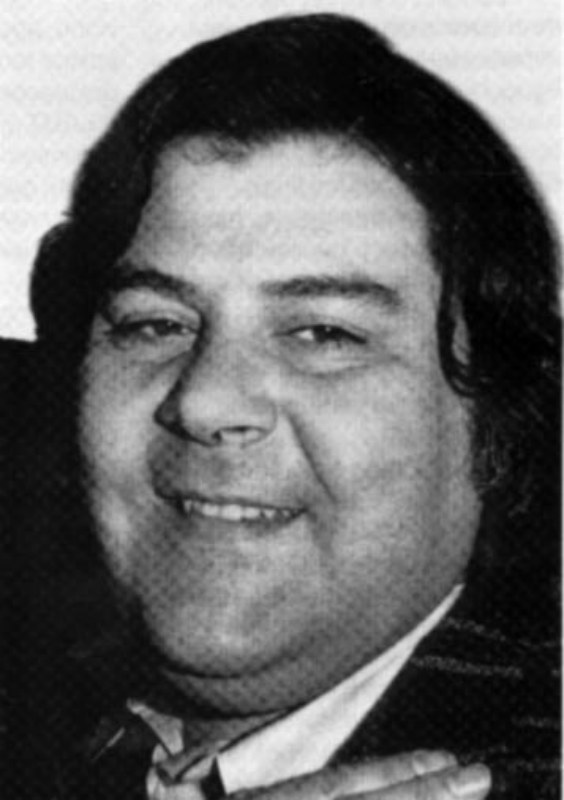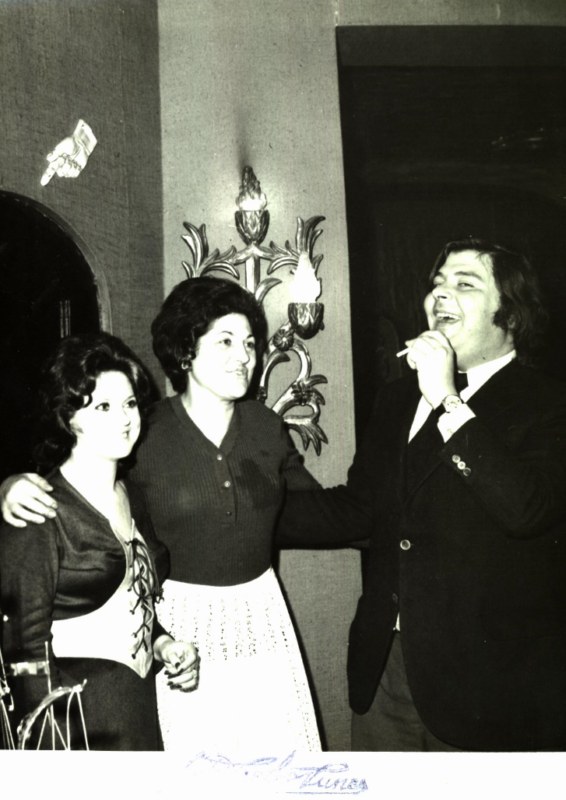Know more:
Ary dos Santos
(N. 7 December, 1937 - M. 18 January, 1984)José Carlos Pereira Ary dos Santos became known to the general public as one of the most talented poets of his generation. He contributed to the renewal of Portuguese light music by way of his poems, which he considered his way of addressing the people – as being a poet means selecting the words that the people deserves to hear.
The older son of physician Carlos Ary dos Santos and Maria Bárbara de Castro Pereira, José Carlos Ary dos Santos was born in Lisbon on the 7 December 1937. The couple had two other daughters, Maria do Rosário and Maria Isabel, and a son, Diogo. His mother died when he was a teenager and his father remarried. From this relationship his half-sister Ana Maria was born.
He began his studies at Colégio Infante Sagres but he was expelled due to bad conduct and moved to Instituto Nuno Álvares, a boarding school at Santo Tirso. He later resumed his studies in Lisbon, at Colégio São João de Brito, in the Lumiar district. Although he never finished a university degree, he read Law and Humanities in Lisbon.
Ary dos Santos began to write poetry at a very early. In 1953 his family published his first book, titled “Asas”, against his will.
His rebellious personality led him to leave home at only 16. To make ends meet, he held many odd jobs – namely salesman of chewing gum, office boy at Sociedade Nacional de Fósforos and clerk at Casino Estoril. In 1958 Ary dos Santos started a career in advertising, a business where he achieved great success due to this creativeness for publicity slogans.
In parallel he continued to write his poems. In 1954 the quality of his writings was recognized and some of his poems were selected to be published in the Anthology of the Almeida Garrett Award, together with well-known names of Portuguese poetry.
He made his actual debut in 1963 with the publication of his book of poems “A liturgia do sangue”. The publication of “Tempo da lenda das amendoeiras” came in 1964, as well as his poem “Azul existe”, which would be represented at Tivoli, Teatro da Estufa Fria and RTP.
Throughout his career Ary dos Santos kept publishing books of poems, namely “Adereços, endereços” (1965), “Insofrimento in sofrimento” (1969), “Fotos-grafias” (1971, a book seized by the PIDE political police), “Resumo” (1973), “As Portas que Abril Abriu” (1975), “O Sangue das Palavras” (1979) and “20 Anos de Poesia” (1983).
At the time of his death, in 1984, he was preparing the publication of “As Palavras das Cantigas”, published in 1989 by Edições Avante, under the supervision of Ruben de Carvalho. He was also preparing a fictioned autobiography, which he wanted to call “Estrada da Luz – Rua da Saudade”. Later on, in 1994, “Obra Poética”, a collection of his poems, was published.
The theatricality of his vibrant voice is registered on several records, where he acts as declaimer. His first record, “Ary por si próprio”, dates back from 1970. In 1971 he had a participation in LP “Cantigas de Amigos”, with Natália Correia and Amália Rodrigues. In 1974 came “Poesia Política”, followed by “Llanto para Afonso Sastre y Todos” (1975), “Bandeira Comunista” (1977), “Ary por Ary” (1979) and “Ary 80” (1980), which would be republished on CD in 1999.
One of the strands of the life of poet Ary dos Santos was also his intense activity as political militant, which led him to travel around the country, before and after the 25 April Revolution, supporting people and causes. Ary dos Santos began his political life in 1969. He then joined the campaign of the Democratic Electoral Committee (CDE) and became a member of the Portuguese Communist Party.
The extraordinary creative skills of Ary dos Santos were also visible in the field that gave him more success and popularity with the general public – as author of poems for songs and fados.
In 1969 he submitted a song, under pseudonym, to the RTP Festival da Canção, with the poem “Desfolhada”. With music by Nuno Nazareth Fernandes and the voice of Simone de Oliveira, the son won the contest. It was published on record and repeatedly presented on the radio and television, as well as in shows all over the country.
The poet would once more win the RTP Festival da Canção in 1971 (again in partnership with Nuno Nazareth Fernandes, with singer Tonicha interpreting the poem “Menina”) and in 1973 and 1977, with music and singing by Fernando Tordo, first with his theme “Tourada” and then “Portugal no Coração”.
José Carlos Ary dos Santos wrote more than 600 poems for songs and frequently collaborated with some composers, namely the abovementioned Nuno Nazareth Fernandes and Fernando Tordo, but also Alain Oulman, José Mário Branco, Paulo de Carvalho and António Victorino de Almeida.
His relationship with fado began with the interpreting of his poem “Desespero” (published in the 1963 book “Liturgia de Sangue”) by José Manuel Osório, in a record edited in 1967.
Later on he wrote specifically for several fado singers and had regular collaborations with Amália Rodrigues and Carlos do Carmo.
At the invitation of Alain Oulman, in 1968 he wrote the poem “Meu amor meu amor” to be interpreted by Amália Rodrigues. Then came themes like “Amêndoa Amarga”, "Alfama", "Rosa Vermelha", “O Meu é Teu" and "O Meu Amigo está Longe".
Some poems are quite illustrative of the great popularity of the poems of Ary dos Santos among the general public. Special reference should be made to “Estrela da Tarde”, “Lisboa, Menina e Moça” and “Os Putos”, sung by Carlos do Carmo, with music by Fernando Tordo and Paulo de Carvalho.
More importantly his name is related to a landmark record in the History of Fado, also by fado singer Carlos do Carmo – i.e. LP “Um Homem na Cidade”, of 1977, entirely composed of poems by Ary dos Santos. The same format would also be adopted for the LP “Um Homem no País”, published in 1984, also with lyrics of the poet put into music by different composers.
He created other poems to be interpreted by fado singers. In 1973 he wrote “Adagio”, for Albinoni’s “Adagio”, which was performed by Teresa Silva Carvalho. In 1974 he wrote “Meu corpo”, for the repertoire of Beatriz da Conceição. In 1977, the poem “Roseira, botão de gente” was performed by Vasco Rafael at the vaudeville “Ó da Guarda”. In 1981 “O país” was sung by Tony de Matos. The poems “Mãe solteira”, “Fado Mulher”, “Os Pinheiros” and “A Cidade”, written in the early 1980’s, were performed by fado singer Maria Armanda.
Poet José Carlos Ary dos Santos died on the 18 January 1984 of cyrrhosis, as he regularly drank huge amounts of gin. He was buried in the cemetery of Alto de São João.
Openly homosexual, he lived virtually all his life at no. 23 of Rua da Saudade. After his death his name was therefore given to a square in the Alfama district, and a tablet recalling the fact was placed on the wall outside the house where he used to live, at Rua da Saudade.
Fonte:
Carvalho, Ruben, 1993, “José Carlos Ary dos Santos: As Palavras das Cantigas”, Lisboa, Edições Avante;
Marques, Paulo, 2008, “José Carlos Ary dos Santos”, Col. “Cadernos Biográficos”, Vol. 7, Lisboa, Parceria A. M. Pereira/Público.

Ary dos Santos, s/d.

Maria da Fé e Ary dos Santos Tipóia, 1970
-
Fado do Campo Grande Carlos do Carmo (Ary dos Santos / António Vitorino de Almeida)